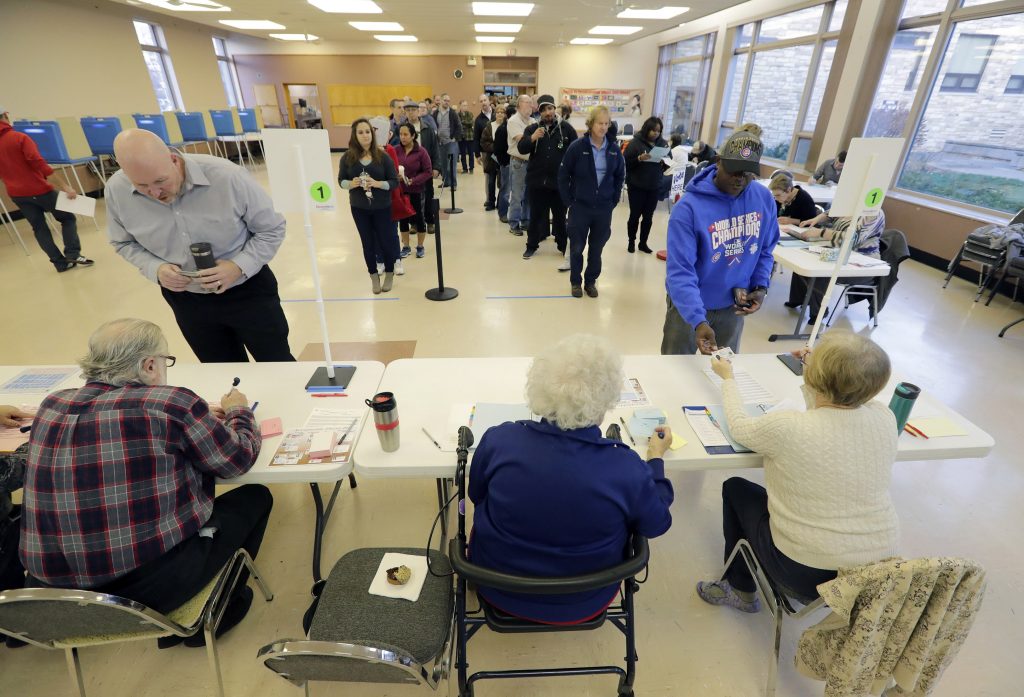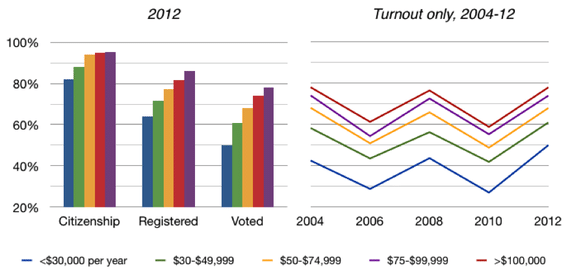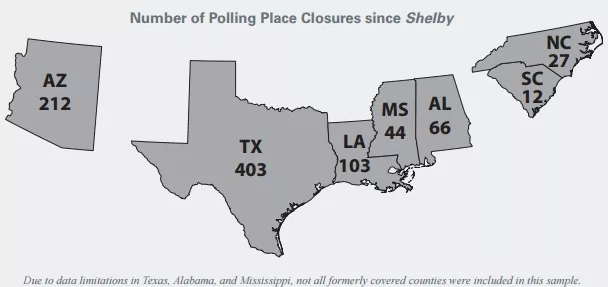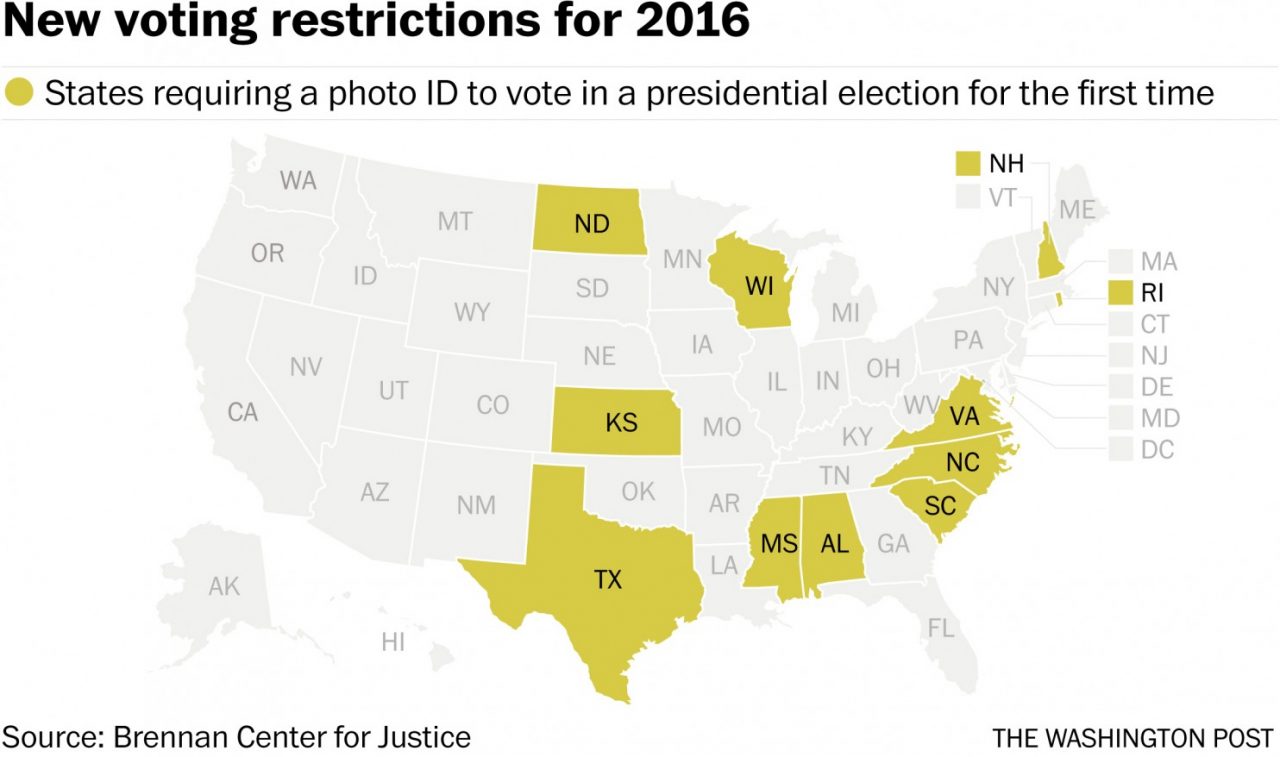
Here’s why the cost of voting is higher than you think
It’s Election Day in the USA, and everyone from Trevor Noah to Katy Perry is urging Americans to get out there and vote. But transportation difficulties, lack of time, and voter ID laws mean that not everyone is able to access the ballot booth, even if they wanted to.
There are a lot of costs to voting. Things like transportation to the polls, the time it takes to vote and the cost of getting the right documents to vote can be a serious problem if you don’t have much money. In 2014 only 30.8% of people in families earning less than $20,000 a year voted in national elections.

Just getting to the polls can be costly
A big cost of voting is transportation. A lot of Americans simply drive to their polling places to cast their votes—so the only cost involved is the price of gas. But for people without cars—most of whom are poor—getting to the polls can mean walking or dealing with (and paying for) public transportation. If you’re disabled, it’s even more complicated.
These problems are even bigger for people who want to vote early or live in rural areas. Early voting is often only held at one location in a county, which can be across town or even in another city. In rural areas, even election day polling can be a trek away—in some parts of Nevada people live as far as 65 miles (105 km) from their polling places.
And once you're there, voting can take a while
*ALMOST* this entire line outside @NCState to vote early just before the 1pm cut off. Everyone in a good mood - pizza is coming. pic.twitter.com/mn8AoJ4NOq
— Sean Gallitz (@seangallitz) November 5, 2016
Low wage jobs usually have less flexible schedules, so for a lot of people it’s difficult to take off work to vote. Voting also takes time, which is costly (in an economic sense), so even if people can get off work, it can be difficult to justify standing in a voting line for hours instead of making much needed money.
“Waiting in lines makes people feel like their vote isn’t likely to be counted and that it doesn’t matter. Those feelings of disenfranchisement then lead to a further reluctance to vote. ”
Voting takes time. But in certain districts, waiting times are longer than what many people can afford. The process is run at a local level, and poorer districts are by nature less well equipped to get people's votes processed fast, because if the people living in the district are poor, their taxes don't amount to much. Less funding means fewer polling places and fewer staff to run them.
The cost in lost wages due to waiting in line during the 2012 presidential election was $544.4 million, according to a CalTech and MIT study. The study also found that waiting in lines makes people feel like their vote isn’t likely to be counted and that it doesn’t matter. Those feelings of disenfranchisement then lead to a further reluctance to vote.
And it's set to be worse than ever this year. A recent Supreme Court case overturned legislation which ruled that areas with a history of racially-based voter suppression had to ask the federal government for permission before making changes to their election laws. That means places previously under government scrutiny have drastically decreased their number of polling stations, without anyone noticing. That means even longer lines.

And some places will only let you vote if you already have a photo ID
On a federal level, voters don't need an ID to vote: a utility bill with name and address is enough. But this year, 11 states will require a photo ID for the first time in this election.
If you don’t already have a photo ID, it’s technically free to apply for one, but there are a lot of other costs involved. You have to present documentation like a birth certificate or passport, which not everyone has. If you don’t have one of these the costs to obtain new ones can be $20 or $30 in addition to transportation to places like courthouses to get one. And again, this all becomes more complicated if you’re disabled.
Photo IDs for those who cannot afford to have a car or a driver's license, or those whose disability prevents them from driving, are technically free, but there are other costs associated with obtaining one. By comparison the poll taxes outlawed during the civil rights cost about $10 in adjusted dollars.

Checking everyone's IDs also takes time, contributing to the long lines at polling places.
Early voting line in Toledo wraps around two corners-- twice as long as yesterday #OHVotesEarly #OHHillYes pic.twitter.com/bNoBciuzys
— Monica Klein (@MonicaCKlein) November 6, 2016
I've got time and want to help, what can I do?
If you have access to a car and some free time call your local election board or campaign headquarters and offer to drive people to the polls. If all you have is free time, that’s good too – you could volunteer at a local polling place to keep the wait times low, and voter traffic moving smoothly.



